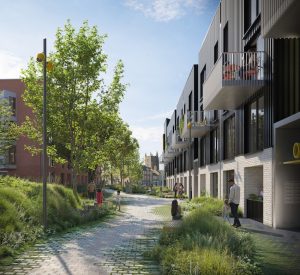Property sector urged to wake up to the ‘age of digital disruption’

BIRMINGHAM’S property sector may have to ditch traditional thinking in order to respond to the ‘age of digital disruption’, according to a new report.
The report – ‘The Future of TMT Workplace’ – produced jointly by business strategists Unwork and property consultancy Cushman & Wakefield, says the office of the future will look very different to that of today.
That is because the fast-growing TMT (technology, media and telecoms) sector will have vastly different requirements to today’s traditional office occupiers, it says.
The report says that the office of tomorrow will consist of modular workplaces that can be refitted to fit new roles, with flexibility the key to all office design.
The report adds that inner city campuses will become more popular, and this may threaten the future of the out-of-town market, such as Birmingham’s M2 corridor.
David Tonks, head of the Birmingham office of Cushman & Wakefield, said Birmingham and other locations needed to be ready for the change that the growth of the TMT sector would bring about.
He said the city needed to be able to accommodate the needs of such companies by focusing on large urban campuses for the bigger firms in this sector, but also look at more flexible office buildings which could offer solutions to new working practices such as ‘Activity Based Working (ABW)’, which is a more advanced form of hot-desking, where a group of workers have ‘shared ownership of the workspace’.
“Everyone involved in the development of workplace strategies needs to understand the forces shaping the TMT workplace of the future,” Tonks said.
“We need to start acting now to begin to future-proof our workplaces, in order to attract and retain firms operating in the TMT sector.”
Tonks said that the current regeneration of the Digbeth area was an opportunity to put new thinking into practice, as the location was ideal for attracting TMT companies, given its inner city status and growing accessibility.









